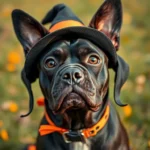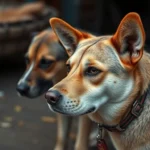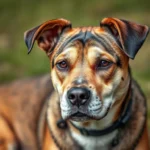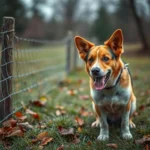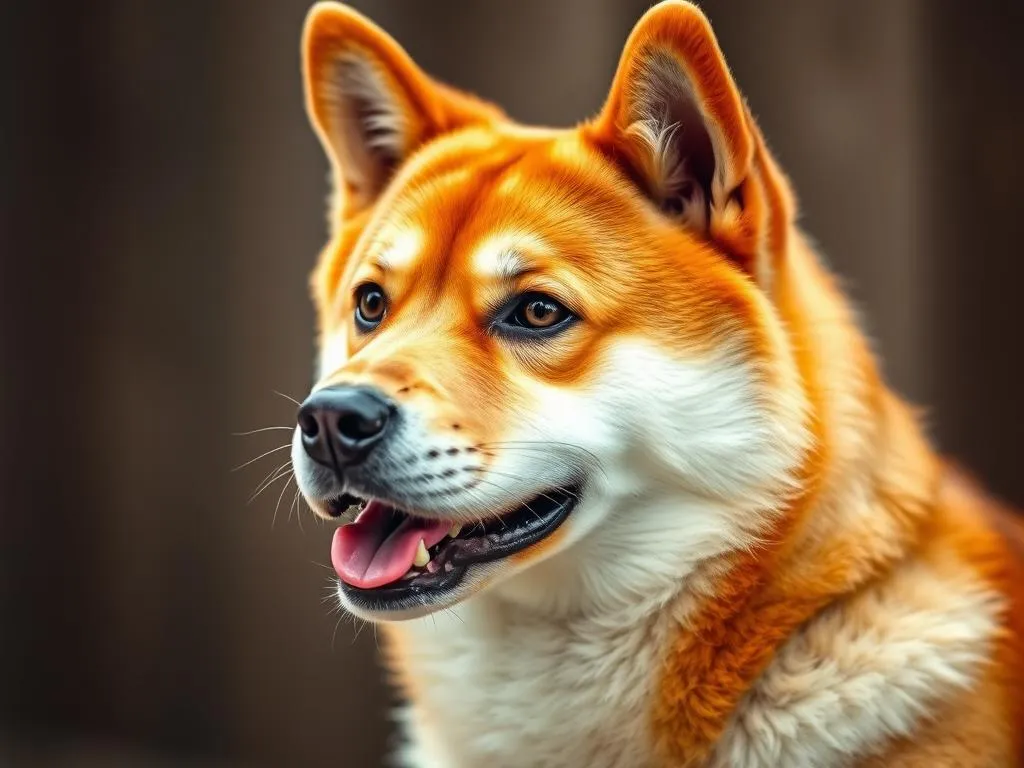
Introduction
The Shiba Inu is a breed that has captured the hearts of many dog lovers around the globe. Known for their fox-like appearance and spirited personality, these dogs are a favorite among pet owners. But when it comes to the question of whether a Shiba Inu is a good guard dog, the answer is not as straightforward as one might think. Understanding a dog’s guarding abilities is essential for potential owners, particularly those considering the Shiba Inu as a protector for their home or family.
In this article, we will delve into various aspects of the Shiba Inu breed, including its history, physical characteristics, temperament, and natural instincts. We will also explore the qualities that make an effective guard dog, compare Shiba Inus with other breeds known for their guarding abilities, and discuss the pros and cons of having a Shiba Inu as a guard dog. Finally, we will share real-life experiences from Shiba Inu owners and suggest alternative breeds for those seeking a more traditional guard dog.
Understanding the Shiba Inu
History and Origin
The Shiba Inu hails from Japan, where it has a rich history dating back over 2,000 years. Originally bred for hunting small game, this breed was favored for its agility and keen senses. The Shiba Inu’s name translates to “small dog” in Japanese, reflecting its compact size. As the breed evolved, so did its role in Japanese culture, transitioning from a hunting companion to a beloved family pet.
Physical Characteristics
The Shiba Inu is a small to medium-sized dog, typically weighing between 17 to 23 pounds. Standing about 13.5 to 16.5 inches at the shoulder, they possess a well-proportioned body with a strong, muscular build. One of their most distinctive features is their curled tail, which rests high on their back. Their double coat, which can come in various colors including red, sesame, black and tan, or cream, adds to their striking appearance.
Temperament and Personality
A Shiba Inu is known for its spirited and confident personality. They are exceptionally loyal to their families but can be quite independent and sometimes aloof with strangers. This independence can be both a blessing and a curse; while it makes them self-sufficient, it can also lead to stubbornness. They are intelligent dogs, which means they can learn commands quickly, but their strong will may pose a challenge during training.
Guard Dog Traits
What Makes a Good Guard Dog?
When evaluating whether a Shiba Inu is a good guard dog, it’s important to understand the key characteristics that make a dog effective in this role. A good guard dog should possess qualities such as:
- Alertness: The ability to recognize unusual activities or intruders.
- Protectiveness: A natural instinct to protect their family or territory.
- Loyalty: A strong bond with their owner, fostering a desire to defend them.
- Intelligence: The ability to assess situations and respond appropriately.
Comparison with Other Breeds
While the Shiba Inu has its unique strengths, breeds like German Shepherds and Rottweilers are often recognized as more effective guard dogs. These breeds have been specifically bred for protection and have a history of working alongside law enforcement and security personnel. In comparison, the Shiba Inu’s guarding instincts may not be as pronounced, making them less predictable in high-stress situations.
Shiba Inu as a Guard Dog
Natural Instincts
Despite their size, Shiba Inus possess some inherent protective instincts. They are naturally alert and will often be the first to notice changes in their environment. This can be beneficial when it comes to guarding their home, as they are likely to bark to alert their owners to any potential threats. However, their protective instincts are not as strong as those seen in traditional guard dog breeds.
Vocalization and Territorial Behavior
One of the distinctive traits of the Shiba Inu is its vocalization. They are known for their unique “Shiba scream,” a high-pitched vocalization that can be startling. This barking can serve as a warning to intruders, though it might not deter them in the same way that a larger, more aggressive breed would. Additionally, Shiba Inus tend to be territorial, which can contribute to their guarding behavior. They often feel the need to protect their space, making them vigilant watchdogs.
Training and Socialization
Early training and socialization are crucial for any dog, especially for one intended to serve as a guard dog. While Shiba Inus can be trained to exhibit guarding behaviors, owners may face some challenges due to their independent nature. Positive reinforcement techniques work best, as harsh training methods can lead to resistance or fear. Socialization with various environments, people, and other animals is also essential to help mitigate potential aggression and ensure a well-rounded dog.
Pros and Cons of Shiba Inu as a Guard Dog
Advantages
-
Natural Alertness and Loyalty: Shiba Inus are naturally alert and will quickly notice any changes in their surroundings, making them effective watchdogs. Their loyalty to their families adds an extra layer of protection.
-
Size and Agility Considerations: While they may not be the largest dogs, their agility and speed can be beneficial in certain situations, allowing them to react quickly to perceived threats.
-
Low Maintenance and Adaptability: Shiba Inus require relatively low maintenance in terms of grooming and exercise. They adapt well to various living situations, whether in an apartment or a house with a yard.
Disadvantages
-
Potential for Stubbornness and Independence: Shiba Inus are known for their independent streak, which can make training more challenging. They may not always listen to commands, especially if they perceive themselves as the “alpha.”
-
Limited Size for Physical Deterrence: Given their smaller size compared to traditional guard dogs, Shiba Inus may not be effective deterrents against larger intruders.
-
Challenges with Socialization Leading to Aggression: If not properly socialized, Shiba Inus can become aggressive toward strangers or other animals, which can be a concern for potential owners.
Real-Life Experiences and Case Studies
Testimonials from Shiba Inu Owners
Many Shiba Inu owners have shared personal anecdotes highlighting their dogs’ guarding behavior. Some report that their Shiba Inus are excellent watchdogs, alerting them to any visitors or unusual noises. Owners often mention how their dogs’ vocalizations can deter potential threats simply by alerting them of someone approaching.
However, there are also stories where Shiba Inus displayed a lack of aggression toward intruders, leading to mixed feelings about their effectiveness as guard dogs. Owners suggest that while Shiba Inus may not act as traditional guard dogs, their alertness makes them valuable companions for home security.
Case Studies of Shiba Inus in Guarding Roles
There are instances where Shiba Inus have been employed in guarding scenarios, such as homes and small businesses. In some cases, these dogs have successfully deterred unwanted visitors simply through their vocalizations and alertness. However, there are also situations where their smaller size limited their ability to physically confront intruders.
Success stories often highlight the importance of training and socialization. Owners who invested time in teaching their Shiba Inus to respond appropriately to various situations reported more favorable outcomes in terms of guarding behavior.
Alternatives to Shiba Inu as Guard Dogs
Other Breeds to Consider
For those specifically seeking a dog with a strong guarding reputation, several breeds might be more suitable than the Shiba Inu. Some alternatives include:
- German Shepherd: Known for their intelligence and protective instincts, these dogs excel in guarding roles.
- Rottweiler: Strong and confident, Rottweilers are often used in security and law enforcement.
- Doberman Pinscher: Renowned for loyalty and alertness, Dobermans are excellent guard dogs.
While these breeds may offer superior guarding capabilities, they also require specific training and socialization to ensure they are well-behaved and balanced.
Mixed Breeds
Adopting a mixed breed can also be an option for those looking for a guard dog. Mixed-breed dogs often exhibit a combination of traits from their parent breeds, which can lead to unique temperaments and capabilities. Evaluating each dog’s individual temperament and behavior is crucial, as not all mixed breeds will possess the guarding instincts desired.
Conclusion
In summary, while a Shiba Inu is a good guard dog in certain respects, they may not fulfill all the expectations associated with traditional guarding breeds. Their natural alertness and loyalty can make them effective watchdogs, but their independent nature and smaller size may limit their effectiveness in physically deterring intruders.
Potential owners should consider their lifestyle and needs, weighing the pros and cons before deciding whether a Shiba Inu is the right choice for their guarding requirements. Ultimately, understanding a Shiba Inu’s temperament and capabilities can lead to a fulfilling relationship and a secure home environment. If you’re considering adopting a Shiba Inu, take the time to assess how their personality aligns with your expectations for a guard dog.

